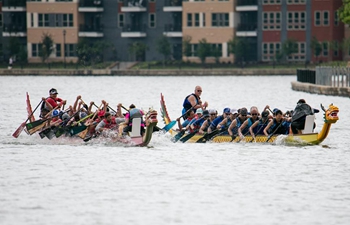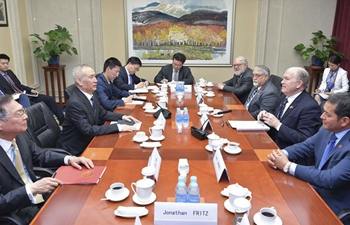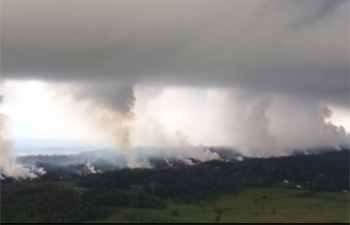WASHINGTON, May 21 (Xinhua) -- The U.S. Department of Defense said Monday a possible name change for the U.S. Pacific Command to Indo-Pacific Command would not change the command's responsibilities.
The possible name change is to "better encapsulate the responsibilities the command currently has," Pentagon spokesman Robert Manning told a routine briefing, adding the command would have "the same Area of Responsibility."
"As you look at titles and unit designations, organizations, the name of an organization should encapsulate their responsibility and so certainly that's a consideration," Manning said.
The U.S. Pacific Command currently covers most of the Pacific Ocean and half of the Indian Ocean. A defense bill rolled out by the U.S. Congress earlier this month pledged funding for the Pentagon's efforts "to plan for and provide the necessary forces and military infrastructure, and logistics capabilities, in the region through the Indo-Pacific Stability Initiative."
The bill, which is yet to be ratified, also directs the Pentagon to change the Pacific Command to Indo-Pacific Command beginning 2020.
Manning said so far there's no announcement on the name change but said the "significance of any name change is to better characterize the responsibility."
The Trump administration has been keen to push forward an Indo-Pacific strategy since 2017, a shift from the previous Asian-Pacific terminology to incorporate regions around the Indian Ocean, raising hopes that it would find more allies to help solidify the U.S. presence in Asia.
But the strategy has come under heavy criticism by U.S. scholars, who say the hawkish strategy was based on misreading the Asian region and could turn out counterproductive.
The Indo-Pacific strategy risks undermining the regional order it seeks to uphold, said Michael Swaine, senior fellow at the Carnegie Endowment for International Peace.
"It reflects the Trump administration's overall destructive tendency to view the world not as a global community but merely as a transactional arena where nations compete for egocentric advantage," he said.













